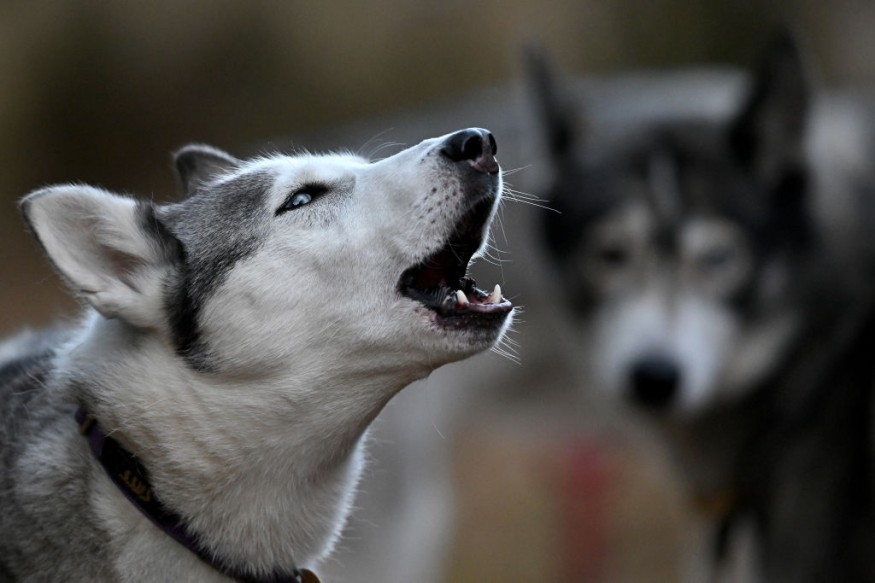After his owners labeled him a homosexual for humping another male dog, a canine was abandoned at a North Carolina animal shelter.
Meet Fezco
According to Stanly County Animal Protective Services in Albemarle, approximately 40 miles east of Charlotte, Fezco weighs 50 pounds and is four to five years old.
After his owners witnessed him behaving in ways they didn't approve of, the shelter is looking for volunteers to house Fezco until he can be adopted.
According to the shelter, the dog, whose breed is unknown, is amiable and gets along well with other humans and animals.
Animal Behavior

According to the ASPCA, mounting or thrusting can be a typical aspect of a pet's play and isn't always indicative of their sexuality.
Puppies frequently mount playmates, humans, and toys until sexual maturity, although neutered or spayed male or female dogs may continue to mount because they like it.
Dogs often mount other animals "to exhibit social status or control," according to the ASPCA.
According to Scientific American, homosexual behavior has been seen in over 1,500 animal species.
As of Sunday morning, it was unknown whether Fezco had been fostered or adopted.
Sexual Activity
According to PETA, elephants, giraffes, dolphins, penguins, Japanese macaque monkeys, and lions have all been spotted participating in same-sex sexual activity.
Male penguins in long-term partnerships have been observed at both the London Zoo and the Central Park Zoo, with penguins Ronnie and Reggie and Roy and Silo, respectively.
According to PETA, male giraffes "are known to brush their necks around one other's bodies and spend several hours wooing and caring for their possible companion."
According to scientists, male lions have also been recorded nuzzling, stroking, and mounting one other.
Evolutionary Dilemma

The majority of a study investigating same-sex partnerships in animals referred to the behavior as an "evolutionary dilemma" because it neither helps the animal reproduce nor directly contributes to the species' survival.
However, University of California, Riverside scientists Nathan W. Bailey and Marlene Zuk discovered certain advantages to the method.
According to Yale Scientific magazine, "their investigations of the Laysan albatross reveal that female-female coupling can boost fitness by taking advantage of the abundance of females and scarcity of males in the community and providing superior care for chicks."
Furthermore, in many species, same-sex pairing lessens the incidence of divorce.
It relieves pressure on the opposite sex by allowing members to create relationships with greater flexibility, enhancing social connections and minimizing rivalry.
Researchers are increasingly rejecting the notion that same-sex animal behavior is abnormal or evolved independently in each species.
Homosexuality in the Animal World
Homosexuality has been recorded in nature in over 1,500 animal species, including humans.
There is yet an accepted explanation for why certain animals are gay, and others are heterosexual based on neurological, chemical, or behavioral variables.
Some experts believed it's because of testosterone levels in the womb, although this is still an intensely discussed theory that hasn't been proven.
Many animals, including macaques, dwarf chimps, lions, giraffes, dolphins, orcas, and humans, have homosexual behavior.
According to some research, homosexuality can be found in up to 95% of all animal species.
Hypothesis
When it comes to the frequency of homosexuality in nature, there are two main schools of thinking.
According to one hypothesis, animal homosexuality does not require an explanation, as animals are gay as naturally as heterosexuals.
It appears unreasonable that it has survived as a feature because it prevents humans from directly reproducing.
Still, many argued that it permits individuals to guarantee their genetic material is handed through the generations indirectly by being able to care for family members with progeny.
Related Article : 7 Animals That Prove 'Forever' is Real in Mating
For more news about the animal kingdom, don't forget to follow Nature World News!
© 2025 NatureWorldNews.com All rights reserved. Do not reproduce without permission.

